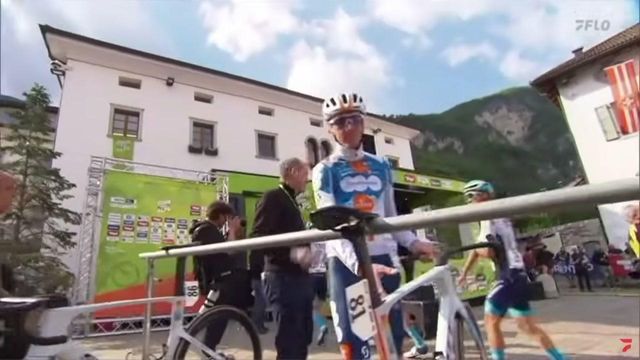You Call This Yoga

A client in her mid-eighties recently mentioned she was looking for a new chair yoga class. I wanted to help. (See this for more on benefits of yoga for aging). Three different people told me to contact Howie Shareff, founder of "You Call This Yoga." Shareff, who ran a dental practice from 1986-2007, was forced to quit practicing after multiple surgeries for arthritis in his neck. He found the stretching and breathing helped him manage the tension. He wanted to provide these tools for people who would not readily have access to them. I recently asked him a few questions.
How did you come up with the name, "You Call This Yoga"?
My yoga practice was very limited due to my arthritis. I felt that laying on the floor, utilizing the support of props, including a chair to lay my legs on, plus my favorite music was a great way to explore my body with minimal strain. This allowed me to adapt poses to my body, and settle into them for a reasonable amount of time. However, my wife Barbara Vosk, was healthier and practiced active yoga. To her and others, this was atypical. My response was that when you combine breathing with gentle, slow movements, “You Call This Yoga."What are the physical benefits of yoga for the people you serve?
Physically, yoga practice can improve focus, breathing, balance, strength and flexibility over time. It can help people of all ages address issues of bone mass, blood pressure, breathing, anxiety/depression, and mental stimulation, while also having a little fun.What are the mental benefits of yoga?
Yoga helps people develop skills to deal with life. We hope, through emphasizing self care, compassion and listening in class, people then apply these principles to themselves and others outside of class. Accepting and working with whatever physical challenges we have can foster improved responses to other challenges we may have.Do you have any stories to share from your work?
Margaret (75) seldom felt very strong, especially her core muscles. Over time we developed a modified plank pose on Margaret’s forearms. Some report this is harder than the conventional pose. Margaret became our “Merry Plankster”.
Doris (91) from Georgia was new to “yogur” when she first began our chair yoga class two years ago. Her arthritic hip and shoulder have achieved greater mobility. She and her classmates at The Cypress of Raleigh have also improved in strength, balance, breathing capacity and comfort from diabetic nerve pain.What classes do you teach and where?
We have a team of 10 teachers who teach free classes to about 100 students in Wake County each week. From Alliance Medical Ministry to Raleigh Parks and Rec, from Boys and Girls Clubs to Healing Transitions in Cary and the VA Hospital in Durham, we try to provide the tools yoga can teach us to audiences who wouldn't normally have access to it.
We also reach the local community with an ongoing 30 minute chair yoga show on Raleigh Channel 10 (Monday at 6:00 am and Tuesday at 6:30). Our YouTube Channel “You Call This Yoga” shares dozens of these shows. The “Practice & Learn” page of our website has interviews, podcasts, blogs and selected videos that show that yoga is accessible to anyone.The best source is the "Calendar" on our website. We also have a Meetup page and a You Call This Yoga Facebook page.
- Any additional information you'd like to share?
You Call This Yoga is developing new yoga programs for people managing cancer in the Triangle area. Please share this with anyone who might benefit.









